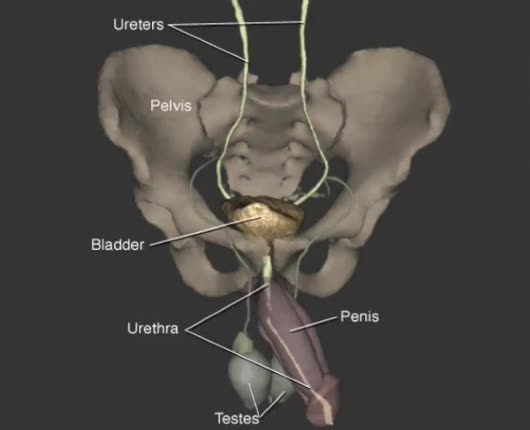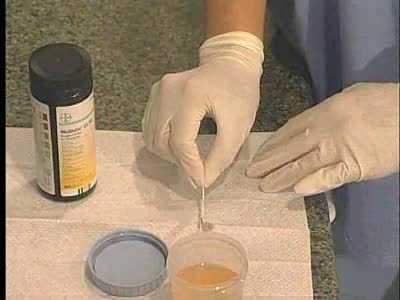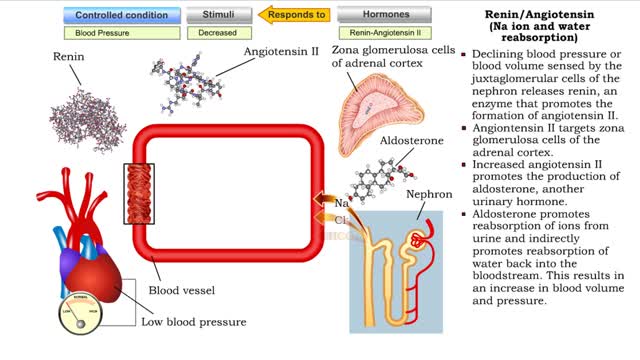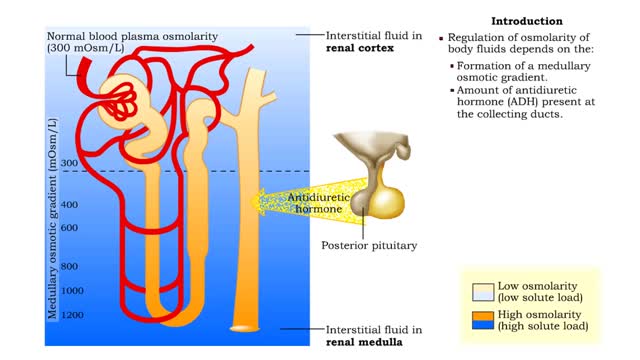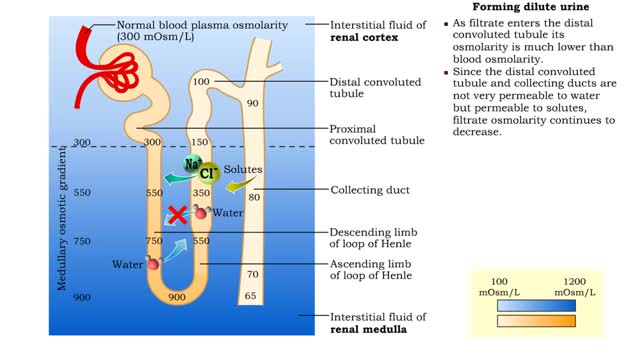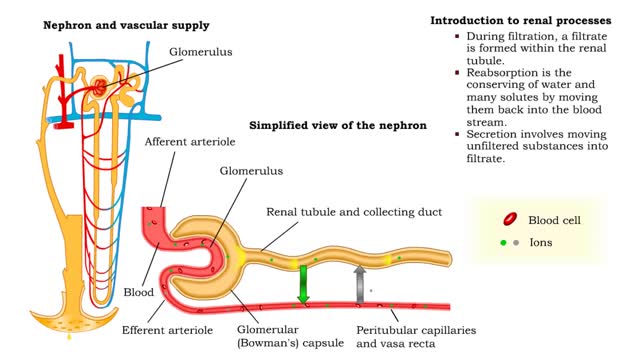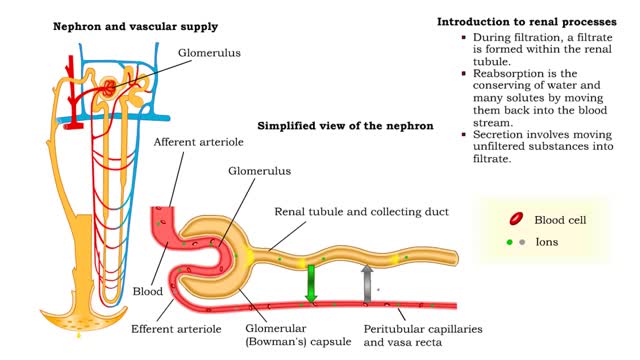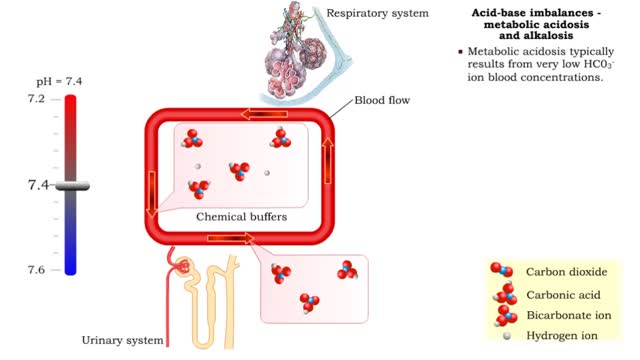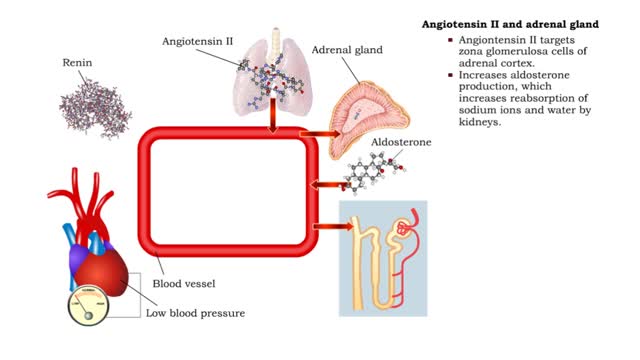Search Results
Results for: 'urine formation'
By: Administrator, Views: 1578
The urinary system: kidneys, ureters, bladder, and urethra with expanded view of a nephron and the urine-filled space within a bladder. Urinary system: two kidneys, two ureters, one bladder, one urethra. Also called the excretory, genitourinary (GU), or urogenital (UG) system. Produces, stor...
By: Administrator, Views: 14903
A urinalysis is a test of your urine. A urinalysis is used to detect and manage a wide range of disorders, such as urinary tract infections, kidney disease and diabetes. A urinalysis involves checking the appearance, concentration and content of urine. Abnormal urinalysis results may point to ...
Renin/Angiotensin (water gain from urine & Na ion and water reabsorption)
By: HWC, Views: 11575
• Sensing declining blood pressure or blood volume, juxtaglomerular cells of the nephron release renin, an enzyme that promotes the formation of angiotensin II. • Angiotensin II targets smooth muscle cells in blood vessels that provide blood to the nephron. • Angiotensin II causes thes...
Medullary osmotic gradient - influencing factors
By: HWC, Views: 12066
▪ Maintenance of fluid volume and composition, despite changes in water input and output, is crucial to a healthy life. ▪ Regulation of blood's osmolarity, or solute concentration, is a function of the nephron. • Normal osmolarity is maintained by the ability of the nephron to alter uri...
Forming urine ( influencing factors), Forming dilute urine & Forming concentrated urine
By: HWC, Views: 12089
• The amount of urine produced by the nephron depends on : • Body fluid volume. • Body fluid composition. • Dilute urine is formed when the body is normally hydrated. • The medullary osmotic gradient determines the osmolarity of the filtrate. • Filtrate osmolarity increase...
Introduction to filtration - filtrate formation and composition
By: HWC, Views: 11743
• At the nephron, the three process responsible for the formation of urine include: • Glomerular filtration. • Tubular reabsorption. • Tubular secretion. • During filtration, a filtrate is formed within the renal tubule. • Reabsorption is the conserving of water and many s...
Carbohydrate Metabolism: Introduction to renal processes and filtrate formation and composition
By: HWC, Views: 11771
• At the nephron, the three process responsible for the formation of urine include: • Glomerular filtration. • Tubular reabsorption. • Tubular secretion. • During filtration, a filtrate is formed within the renal tubule. • Reabsorption is the conserving of water and many s...
Acid-base imbalances - compensation of respiratory acidosis and alkalosis
By: HWC, Views: 11825
• When one pH balancing system is affected then the other balancing system attempts to correct, or compensate for, the pH imbalance. - Respiratory acidosis: • Excessive CO2 is present so blood pH becomes acidic. • Compensation is increased secretion of H+ into urine and reabsorption ...
Angiotensin II - kidneys, adrenal glands and dehydration
By: HWC, Views: 11688
• Angiontensin II targets cells in the proximal convoluted tubule of the nephron. ■ The reabsorption of Na+ and Cl- ions sets up an osmotic gradient favoring the retention of water. • Decreases urine production and increases blood volume and pressure. • Angiontensin II targets zon...
Advertisement



